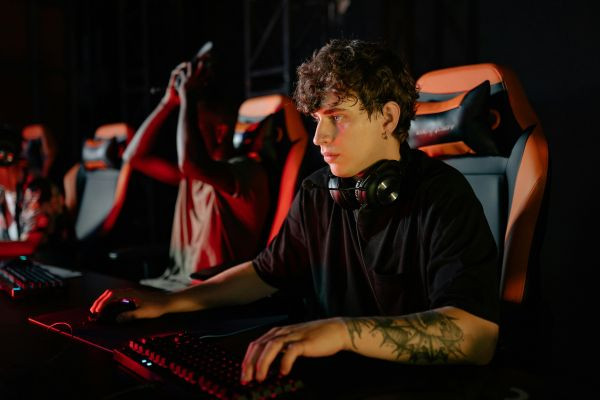Monster hunting games have captured the imagination of players around the world, offering exhilarating battles against towering creatures and mythical beasts.
12/02/24 • 283 Views
Monster hunting games have captured the imagination of players around the world, offering exhilarating battles against towering creatures and mythical beasts. These games combine action, strategy, and RPG elements, creating an engaging experience that challenges players to hunt, strategize, and survive. From legendary franchises to indie hits, monster hunting games continue to grow in popularity. This article delves into the core of these games, their evolution, iconic titles, and their cultural impact.
What are monster hunting games?
The games involve players tracking and chasing different powerful beasts, killing them, or fighting them. The gameplay basically involves monster tracking in large areas, watching their patterns, and the use of various weapons or tools in battles to win. Many of the genre emphasize the use of team play, customization, and proper combat.
Some of the key features of monster hunting games
Tough animals
It's primarily monsters with distinct unique abilities, attack patterns, and weaknesses requiring strategy to defeat.
Customization
The weapons, armor, and equipment are typically fashioned from materials that the players hunted down monsters for.
Massive Worlds
These are humongous detailed environments adding depth to immersion and exploration.
Replayability
The game stimulates playing several times over just to collect those rare materials or gear upgrade, or perhaps for tougher missions.
Iconic Monster Hunting Games
Monster Hunter Series
The Monster Hunter franchise currently has over a million copies sold worldwide, making it undisputedly king of its genre. Titles such as Monster Hunter World and Rise have finally brought the series before the global audience with refined mechanics and stunning visuals.
Dauntless
A free-to-play version, this game provides for streamlined monster-hunting based on accessibility. Players go around in teams to hunt these "Behemoths" around in a colorful, stylized world.
The Witcher 3: Wild Hunt
While it is primarily an RPG, The Witcher 3 has monster-hunting quests where players use preparation, strategy, and Geralt's combat skills to take down deadly creatures.
God Eater Series
This series is somewhat similar to Monster Hunter, because God Eater has fast-paced combat, and the emphasis is placed on crafting weapons and abilities to take down powerful Aragami.
Toukiden Series
Inspired by Japanese folklore, Toukiden provides a rich narrative with unique aesthetics. It blends in cultural elements with traditional monster-hunting gameplay.
Why do gamers like Monster hunting games?
Engaging battle system
The games force the player's skill for complex battles that challenge with an accuracy degree, also a timing degree, and a bit of adaptation. It's basically strategy mixed with action for every battle.
Growth and Customization
A nice progression comes when making new gears or improving the arms through monsters. They get to style play that best fits their choice of style.
Such games are very engaging with their richly detailed ecosystems and lore-filled worlds. Monsters act almost like real creatures, so that really adds to the immersion.
The multiplayer mode is available where players can hunt monsters in teams, combining strengths and tactics to overcome challenges.
Replay Value
Grinding for better gear, rare drops, and new challenges brings the player back for more.
Challenges in Monster Hunting Games:
Steep Learning Curve
It is overwhelming for newcomers, as the mechanics and fighting complexity can be too much to handle.
Mastering weapons and knowing monster behaviors is a time-consuming process.
Monotonous Gameplay
It may be a bit repetitive grinding on resources more so when the drop chance for the rarer stuffs is very low.
Muted Storyline
Some games play it too much on mechanics rather than the story. It won't be too appealing for the player who wants to have more storytelling in it.
The Cultural Impact of Monster Hunter Games
Esports and Streaming
While not as popular as other genres, monster hunting games have found a niche in the world of streaming. Players feature epic battles, speed runs, and creative strategies for enthusiastic audiences.
Community Interaction
The cooperative nature of the genre encourages a very strong sense of community. Forums, social media, and fan art celebrate the creativity and dedication of the player base.
Crossover Events
Such franchises like Monster Hunter work with other games and media to introduce characters and creatures from different universes.
Future of Monster Hunting Games:
AI and Realism
Monsters will be smarter and more realistic as technology improves, and they will receive new challenges as well.
Cross-Platform Play
Games are adopting cross-play functionality where players can team up across platforms.
Ecosystems Expanded
Future games may have much more interactive environments and richer ecosystems where the monsters and environment interact dynamically.
Story-Driven Hunts
The developers will try to focus on richer narrative integration in the genre, thereby appealing to the players who prefer stories along with action.
Conclusion:
Monster hunting games are that unique mix of action, strategy, and immersion that continues to resonate with the player. Be it an old hand at Monster Hunter taking on elder dragons or a new player discovering the colorful world of Dauntless, the thrill of the hunt is limitless. As this genre grows, so will its adventures, promising years of fan engagement.









